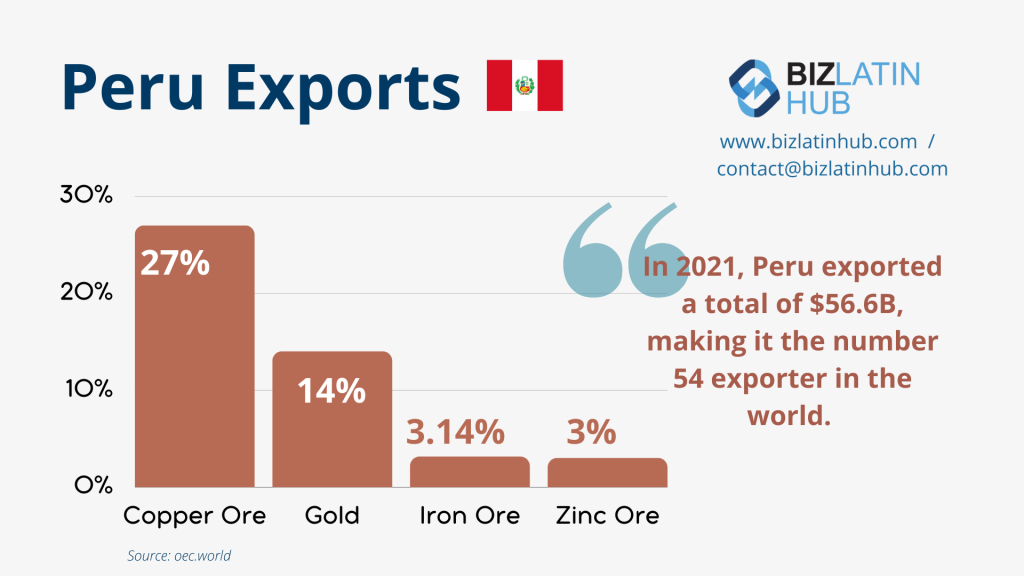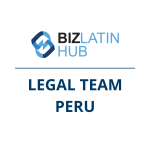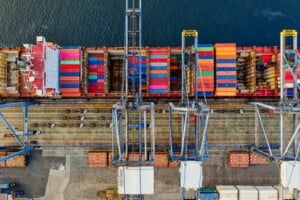The Australia-Peru Free Trade Agreement (PAFTA) was signed by both Australia and Peru on 12 February 2018 in Canberra. The agreement looks to strengthen bilateral relations whilst also better integrate the two nation’s economies as a way to stimulate growth and encourage more foreign investors to incorporate businesses in their territories.
The two nations formally integrated through the Trans-Pacific Partnership (TPP) however after its recent struggle with the USA, trade slowed and both nations suffered. To fill the void, Peru and Australia sought their own trade agreement. Consequently, 3 years on, both nations eagerly await the ratification of a seminal and hugely beneficial trade agreement – The Australia-Peru Free Trade Agreement.
Australia is globally recognized as a mature and stable economy with a trade-focused outlook, exporting 18.8 as a percentage of GDP. Having reported a stagnating economy since 2013, Australia looks to greater export as a method for recovery.
Peru, on the other hand, is one of the fastest-growing economies in Latin America revealing a 5-year compound annual growth rate of 4.5%. Similar to Australia in terms of its reliance on export, Peru also looks to trade as the key to its continued expansion.

Outcomes of Australia-Peru Free Trade Agreement (PAFTA)
By the nature of geography, both Australia and Peru are nations somewhat isolated from the major consumer markets – Asia, North America, and Europe. This means their economies are largely reliant on trade and bilateral relations. When the TPP stalled in 2017, both nations looked to each other for salvation.
The outcomes for PAFTA generally share similar values to that of the TPP. However, in certain areas, the PAFTA is more comprehensive. Generally speaking, both nations can expect a growth in job opportunities, both nations can expect greater export opportunities and both nations can expect a diversification of industry sectors. Whilst the general aims appear to match those of the TPP, Peru, and Australia have also drawn up some more targeted and industry-specific aims.
Specific Aims
Though ‘improving bilateral relations’ and ‘continuing economic growth and prosperity’ are genuine aims, they do not wrestle with the concept of how.
To really tackle greater economic cooperation between Peru and Australia, both nations recognized that an industry-by-industry approach would be required. Outlined are 5 sector-specific outcomes Peru and Australia can expect to see from the ratification of PAFTA.
1. A new destination for products of Australian agriculture
Perhaps the largest beneficiary of the ratification of PAFTA will be Australian agriculture. Australian farmers are some of the largest food producers worldwide, therefore, creating a massive dependency on strong trade deals. The Australian agriculture sector has been vocal in their excitement for the new trade deal to come to fruition. A number of products are expected to benefit.
Taking immediate effect after ratification, Australian wine, beer, sugar, most vegetables and nuts as well as lamb, beef and wheat will become totally duty-free. To contextualize, Australia’s wine tariff will reduce from 9% to 0, whilst their beer drops from 17% to 0. Australia’s sugarcane producers have struggled over recent years with oversupply. They will be hugely gratified by the ratification. Peru is also offering reduced tariffs on certain Australian dairy products like butter, beating the rates offered by the EU.
Consequently, Australian farmers have another consumer group, and Peru has a wider-ranging selection of food for both their supermarkets as well as their well-renowned restaurant industry.
2. Peru – Australia mining
Peru and Australia share the feature of having large mining sectors. Their joint mining production would be the largest in the world, far exceeding competitors like China and Russia. PAFTA looks to cement both nations’ positions in the mining community.
To do this, PAFTA will increase the sharing of mining information, technologies, and equipment by building relations between the major mining companies of the two nations. Peru is expected to particularly benefit from an update in their methods. Australia’s Mining Equipment, Technologies, and Services (METS) is globally recognized as the most advanced mining improvement group in the world. Their cutting-edge equipment, research methods, extraction, engineering as well as safety and environmental concern is expected to completely revolutionize Peru’s industry.

Consulting with this group will significantly improve Peru’s knowledge and efficiency in mining. In addition to this, Peru, for the first time, is permitting Australian companies to bid on Peruvian government mining and oil contracts. Peru is the sixth-largest mining country in the world meaning Australia mining could hugely expand if these contracts are permitted. To facilitate this, PAFTA will also make all minerals, petroleum and natural gas duty-free between the two nations. Joining the forces of the two nations’ mining communities will strengthen both respective industries.
3. Education
Australia and Peru have also pledged to greater open their education and training services to each other. As part of a separate initiative, Australia was one of the first countries to allow Peruvian postgraduates to attend their universities on a full scholarship. In 2012, 1100 postgraduate students attended Australian universities. However, there has never been an undergraduate scheme to support and enable these students.
PAFTA seeks to remedy this. As of the ratification of PAFTA, Peruvian employers will be forced to recognize Australian degrees. This will not only allow Peruvian students to study in Australia and be able to come back and work in Peru but will also allow Australian students to come and work in Peru. Exchanges of people and cultures is expected to improve business relations.
4. Entry of business people and the conducting of professional services
Peru and Australia’s free trade agreement allows the entry of business people for stays in each other’s countries for extended periods of time.
To encourage greater interconnectivity of businesses between Peru and Australia, both nations are allowing a number of business professionals to conduct stays for up to 1-year, 2 years and 4 years dependent on the service. If the business person from either nation is a corporate transfer, a contractual service supplier, an investor or a short-term business visitor, they are likely to be approved of a lengthened stay on their visa.
Corporate transfers seem to be the most significant change in PAFTA. Peru is offering Australian transferees unlimited time in Peru as long as they have a valid work contract, whilst Australia is offering 4 years to senior official Peruvians. For a country with fairly strict immigration laws, that is a significant and positive step for bilateral relations.
5. Digital Trade
The Peru-Australia Free Trade Agreement has set out a rigid platform for the future of trade in the digital age. Particularly in the services industry, trade is becoming increasingly digitized and online. To keep up with the trend, PAFTA guarantees the free flow of data across borders for service suppliers and investors, so as long as it is concerned with business activity.
Both nations have also agreed to not impose a customs duty on electronic content or transmissions. Furthermore, in order to help online commercial activity between the two nations, both recognize the importance of online security. Peru and Australia promise to cooperate on all cyber security threats with their computer emergency response teams. Peru and Australia can expect an airtight cyber security system in the future especially when conducting business between themselves.
Make the most of PAFTA with Biz Latin Hub
Upon ratification, PAFTA is likely to positively transform a wide range of sectors in Peru and Australia. In 2017, trade between Australia and Peru was worth US$640 million. Though it is impossible to accurately forecast the projected growth as a result of this trade deal, both Peru and Australia are expecting economic growth from greater incorporation and a more incentivized set of regulations.
With offices in both Australia and Peru, Biz Latin Hub are very excited to see PAFTA fully integrating into businesses ranging right from agriculture to digital trade. Our offices provide legal and accounting services all across Latin America, in particular, specializing in market entry services. Having closely watched the progress of PAFTA, we can really help any business make the most of this agreement. Get in touch today to help your company take advantage of the possibilities of international business.
Learn more about our team and expert authors.






